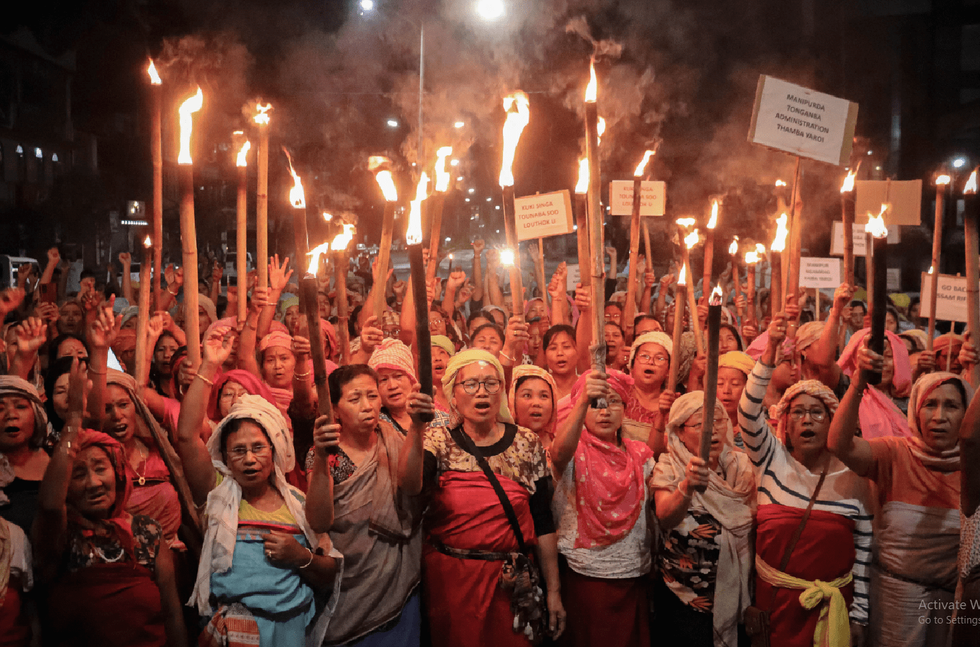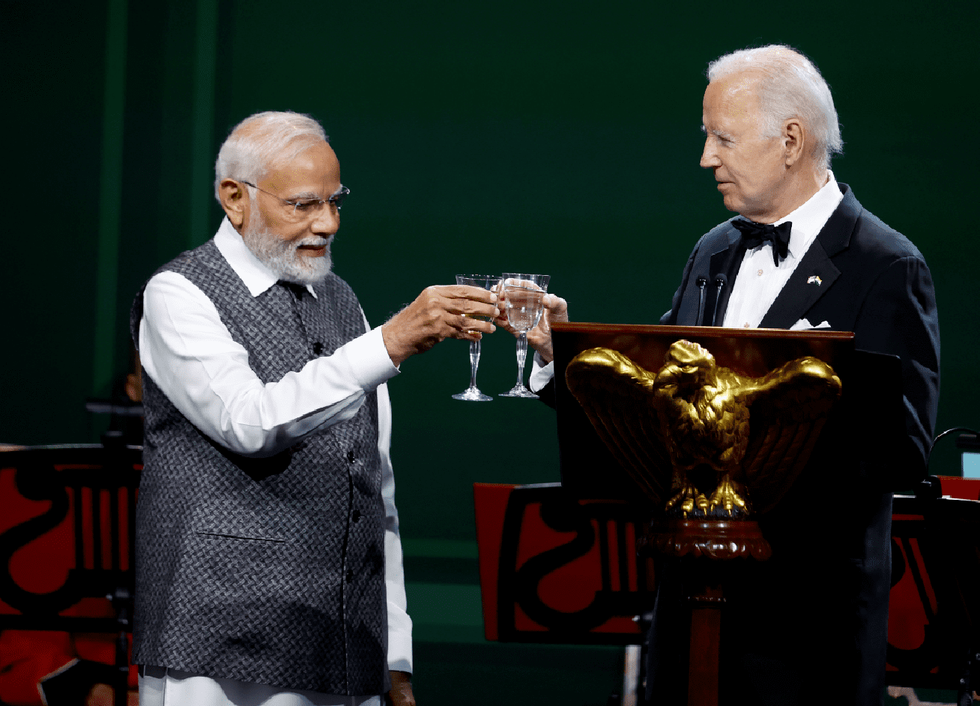INDIA on Tuesday (15) completed 76 years as an independent country.
The historian, Ramachandra Guha, provided a report card in a long article in the Sunday Times (13), headed, “Can India be the next superpower?”
Guha, known to be a critic of the Indian prime minister Narendra Modi, whose Bharatiya Janta Party (BJP) won landslide majorities in 2014 and 2019, said “Modi is heavily favoured to win a third term next year”.
He noted that Modi received a warm welcome from US president Joe Biden in June, and added, “The UK has proved equally welcoming. Modi visited Britain in 2015 and 2018, meeting the Queen and the prime minister on both occasions, and signing commercial agreements worth more than £9 billion on the earlier visit. A huge post-Brexit free-trade deal remains under discussion.”
Guha said Modi’s “economic record is mixed. On the positive side, Modi’s embrace of new digital technologies has made India a world leader in online commerce, while also reducing corruption in the provision of welfare benefits. On the other hand, there is large-scale unemployment and an abysmally low participation of women in the workforce. “

The Modi government’s political record is darker. Through attacks on journalists and raids on proprietors, the freedom of the press has been grievously imperilled. The civil service, the tax authorities and the police increasingly act as instruments of the ruling party. Top posts in the central bank, the election commission, and even the armed forces are often allocated to those seen to be loyal to the BJP.
“India’s position in global indices has plummeted: for example, it now ranks 161st on the World Press Freedom Index, 127th on the Global Gender Gap Index, and 180th on the World Environmental Performance Index.
“Equally as worrisome is the sectarian nature of the regime. The BJP has long embraced a Hindu majoritarian vision of governance and nationhood.
“Though some 200 million Indians are Muslims by faith, they are unrepresented in Modi’s cabinet. The proportion of Muslims in the professions is steadily shrinking. The harassment of Muslims on the street and on social media is widespread. In some north Indian states, extremist Hindus issue public calls for the boycott of Muslim artisans and traders. Yet the prime minister has stayed strategically silent, even when BJP MPs and ministers encourage violence against Indian Muslims.
“Nor are Muslims the only vulnerable minority. Even as Modi was touring the US in June, a civil war was raging in the northeastern state of Manipur. This pitted Meiteis, who broadly classify as Hindus, against a tribal group called Kukis, who are mostly Christian. Several hundred people were killed and many more displaced. Though both sides suffered, the Kukis did so to a far greater extent, in part because the state government is dominated by Meiteis.
“Manipur has been aflame for more than three months now. The Modi government has done nothing to restore law and order or faith in the impartiality of the state. Instead, it has supported the nakedly partisan chief minister, a Meitei from the BJP.
“Even as I write, inter-religious violence has erupted in a second Indian state, Haryana, which borders Delhi, and is also run by the BJP. A provocative procession with radical Hindus brandishing swords and carrying guns led to stonethrowing by Muslims, the violence intensifying further.”
To some extent, the lives of British Asians are affected by what happens back in India, Pakistan and Bangladesh. This has become a cliché, but a “living bridge” is not a bad way to describe the relationship.
According to the most reliable statistics, there are at least 2.5 million people of Indian origin in the UK. For Pakistanis, the figure is one million, and for Bangladeshis the number is probably in excess of 500,000. Seventy-five years on from the Partition of India in 1947, British Asians have become part of the fabric of life in the UK.
The key to their future success really is education. Indians, even those who came as factory workers, have encouraged their children to go to university. Among Pakistanis and Bangladeshis, although attitudes are changing, there has often been a reluctance to allow girls to take up higher education.
Parents should send their children to the best possible schools. Once children are educated, no one can take that away from them. Those who can afford it should forget about politics and go for private education.

Rishi Sunak wouldn’t have become prime minister had he not gone to Winchester, which eased his passage to Oxford. This is why the Labour party is set on destroying fee-paying schools. Once British Asians become educated and independent-minded, it becomes harder to control them. This is just a statement of fact. It would be better if more British Asians went into politics and changed the parties from the inside. Their aim should be to make Britain, now our home, a better place for all our children.
And Indians, Pakistanis and Bangladeshis should ignore the politics of the subcontinent, push to one side the tactics of Modi, [former Pakistan prime minister] Imran Khan, [Bangladesh prime minister] Sheikh Hasina and their rivals, and focus instead on what is going on in this country.

















 LONDON, ENGLAND - JUNE 22: Baroness Floella Benjamin speaks during the unveiling of the National Windrush Monument at Waterloo Station on June 22, 2022 in London, England. The photograph in the background is by Howard Grey. (Photo by John Sibley - WPA Pool/Getty Images)
LONDON, ENGLAND - JUNE 22: Baroness Floella Benjamin speaks during the unveiling of the National Windrush Monument at Waterloo Station on June 22, 2022 in London, England. The photograph in the background is by Howard Grey. (Photo by John Sibley - WPA Pool/Getty Images)

 Ed Sheeran and Arijit Singh
Ed Sheeran and Arijit Singh Aziz Ansari’s Hollywood comedy ‘Good Fortune’
Aziz Ansari’s Hollywood comedy ‘Good Fortune’ Punjabi cinema’s power-packed star cast returns in ‘Sarbala Ji’
Punjabi cinema’s power-packed star cast returns in ‘Sarbala Ji’ Mahira Khan
Mahira Khan ‘Housefull 5’ proves Bollywood is trolling its own audience
‘Housefull 5’ proves Bollywood is trolling its own audience Brilliant indie film ‘Chidiya’
Brilliant indie film ‘Chidiya’  John Abraham
John Abraham Hina Khan and her long-term partner Rocky Jaiswal
Hina Khan and her long-term partner Rocky Jaiswal  Shanaya Kapoor's troubled debut
Shanaya Kapoor's troubled debut Sana Yousuf
Sana Yousuf

